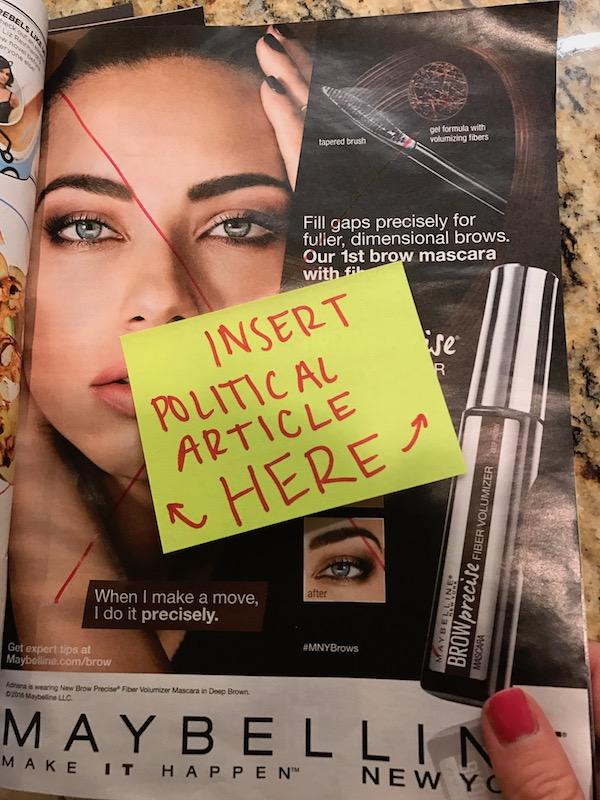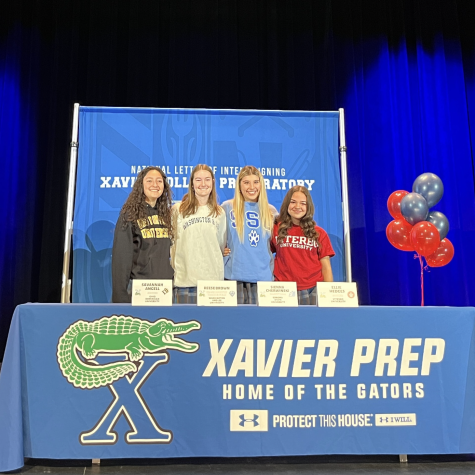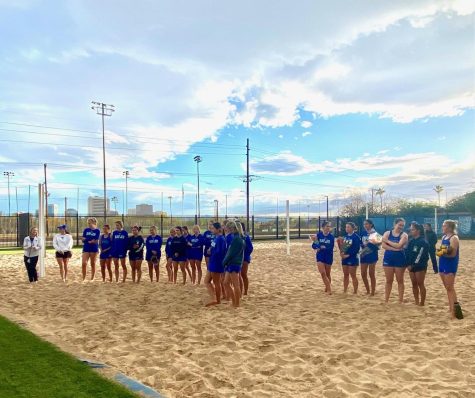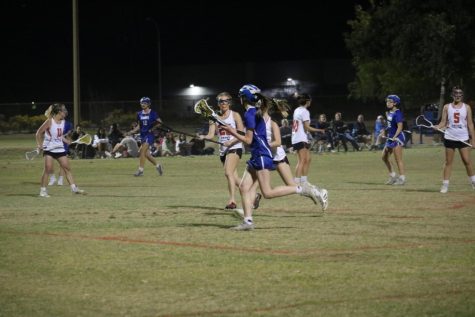Teen Vogue introducing political articles
Resulting from an inability to vote, teens often assume an indifferent disposition towards politics. In an effort to engage young girls in the conversation, Teen Vogue magazine has increasingly integrated politically opinionated and informative articles into their traditional rotation of beauty and style related pieces. Consequently, debate regarding the appropriateness of these articles within the magazine has arisen. Because formal news outlets can intimidate an uninformed reader with advanced economic terms and political concepts, thereby driving her away from the subject altogether, Teen Vogue should continue to incorporate political articles as a means of appealing to and engaging a wider audience of girls.
Since its genesis in 2004, Teen Vogue has consistently issued articles relating to beauty hacks and trends, fashion and celebrities. Political articles contrast these recurring themes, and may seem inappropriate as a result. However, the magazine’s newest editor, Elaine Welteroth, in combination with both Phillip Picardi and Marie Suter, digital editorial director and creative director respectively, have made conscious efforts to alter their message to include topics on feminism and activism.
With women comprising a minority of Congress, it is difficult for girls to feel inspired by this lack of representation. As of 2015, the House of Representatives recorded women to amount to a mere 19.3% of representatives. By implementing political articles into a popular magazine, girls may discover an interest they did not previously have. At the least, it invites them into the conversation and probes their own interests and opinions. In reading these articles, girls accumulate confidence with added knowledge. Instead of feeling removed from political discussions, girls are able to offer their own perspective, and thus the conversation benefits overall.
Seeing as the readers of Teen Vogue will soon be voting themselves, these articles also aid in an important aspect of the process—educating the voter. It is more important to vote based on background knowledge and how the candidate’s position coincides with one’s own as opposed to opting for the more “popular” candidate merely to avoid confrontation or embarrassment.
As of 2016, the results and numbers have spoken for themselves; of the top five most-read articles of the year, two included political topics covering Donald Trump and Mike Pence. The three remaining topics encompassed glitter nails, acne and Netflix, proving the magazine has transcended the stereotypes and successfully entered into a new era of communication with its readers.
The more knowledge about the current government circulating through the lives of young women, the better. Engaging the next generation of leaders at an early age benefits not only their ability to debate and express themselves effectively, but also society as a whole seeing as these women are liable to add new perspectives the more they read.








